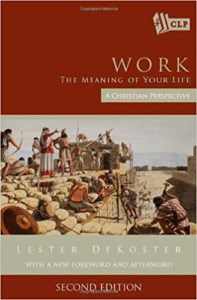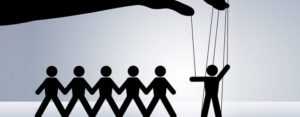All the candidates seeking the democrat party Presidential nomination are promising a plethora of entitlement programs. Free college, free healthcare, free childcare, even free to people who aren’t citizens of the United States. At least one candidate wants to give everyone an income even if they can but don’t want to work. But each dollar taxed and spent deprives Americans of the freedom to make their own choices. When a central bureaucracy directs funds, they tend to come with strings attached.
While it may seem counterintuitive, people are happier when they are engaged in work than when they have free time. The Greek philosopher Aristotle recognized this same idea. For Aristotle, happiness is a final end or goal that encompasses the totality of one’s life. It is not something that can be gained or lost in a few hours, like pleasurable sensations. Aristotle would be strongly critical of the culture of “instant gratification,” which seems to predominate in our society today.
Hungarian-American psychologist Mihály Csíkszentmihályi discovered this same human phenomenon. He did careful research that discovered that some of our deepest intuitions about work, play and what makes us happy was completely backward. He discovered that most people were, in fact, happier at work than at rest. Moreover, he also found that people tended to think they were happier in their free time and would choose to have more free time than work, even though it made them unhappier.
This may explain why a new poll from Gallup found that young Americans (18-29) are souring on capitalism, a system that promotes free choices and independence. Less than half 45 percent, view capitalism positively. That is a 12-point decline in young adults’ positive views of capitalism in just the past two years and a marked shift since 2010 when 68 percent viewed it positively”. Socialism’s promise of things without work is nothing new. So why such a dramatic increase in its favorability?
Perhaps it is due, at least in part, to the fact that young people are leaving their faith. Interestingly, many choose to identify as “none,” meaning they still believe in God or have some sense of spirituality, whatever that means but no longer identify with a particular denomination or branch of faith. Writers, theologians, and social psychologists debate the reasons, but I think it mainly boils down to wanting to pursue me. Their foundation is no longer a transcendent pursuit; rather, it has become one of personal gratification.  This is why they avoid committed relationships and have fewer, if any, children at all. They are scared of permanence. Transcendent experiences, however, are the focus of such a wide variety of world cultures from east to west; without them, we feel empty, and our life becomes void of any deep meaning other than the constant pursuit of material objects and societal accolades, neither of which will ultimately satisfy the human heart and its longing. Living for yourself is a recipe for disaster.
This is why they avoid committed relationships and have fewer, if any, children at all. They are scared of permanence. Transcendent experiences, however, are the focus of such a wide variety of world cultures from east to west; without them, we feel empty, and our life becomes void of any deep meaning other than the constant pursuit of material objects and societal accolades, neither of which will ultimately satisfy the human heart and its longing. Living for yourself is a recipe for disaster.
This may explain why a new study published in the Harvard Business Review found that young people are leaving the workforce in droves. Many of them citing mental health issues as the driving force behind their decision.
There is little doubt that each generation gives their children more than the previous generation. Today many of our youth have no desire nor a need for independence. They delay marriage, live at home longer, and are less independent, all in pursuit of me. Now comes the appeal to socialism, the promise that you can and should have what you want without working for it. Coupled with a lack of transcendence, many young people today are lost in a sea of self-absorption. A new study published in the Journal of American College Health showed that students seeking help for mental health problems had risen considerably between 2009 and 2015.
Human beings have a strong need to become all that they can be, but once this need is met, some continue to feel needs beyond the self and pursue goals that may have little to do with the self. Neglecting those goals and continuing on the “me” path is a form of insanity.

In the west, the Judeo-Christian perspective rightfully understands that envy (desire for another person’s possessions) is a sin. It also recognizes the value of work. “All hard work brings a profit, but mere talk leads only to poverty.” Proverbs 14:3.
Even God worked for six days before taking a day off.
Work: The Meaning of Your Life: A Christian Perspective 
“Where do we find the core of life’s meaning? Right on the job! At whatever work we do with our head or hand, from the kitchen to the executive suite, from your house to the White House. “Work is the great equalizer — everyone has to come to it in order to find meaning in living: no short cuts, no detours, no bargain rates.” Work is the “chisel with which you carve yourself.” That work not only adds value to others, it also adds value to you in the process. By looking outside yourself to see how you can serve others, you are actually building a Godly character. Second, the author argues that work is the difference between civilization and barbarism, between a solid economy and a weak one. I can think of no greater lesson our society needs to learn right this moment.
 Finally, numerous psychological and sociological studies have shown what Genesis taught us long ago. A life-course perspective has posited marital relationships as one of the most important relationships that define life context and affect individuals’ well-being throughout adulthood (Umberson & Montez, 2010). Being married, especially happily married, is associated with better mental and physical health (Carr & Springer, 2010; Umberson, Williams, & Thomeer, 2013), and the strength of the marital effect on health is comparable to that of other traditional risk factors such as smoking and obesity (Sbarra, 2009). Despite this, many people today are simply avoiding the responsibility of family life again, pursuing me. This will never bring true happiness that Aristotle and many others recognized. It will only continue to fill the halls of mental health facilities. True joy is found not in avoiding the cross but rather embracing it and becoming all that you can be.
Finally, numerous psychological and sociological studies have shown what Genesis taught us long ago. A life-course perspective has posited marital relationships as one of the most important relationships that define life context and affect individuals’ well-being throughout adulthood (Umberson & Montez, 2010). Being married, especially happily married, is associated with better mental and physical health (Carr & Springer, 2010; Umberson, Williams, & Thomeer, 2013), and the strength of the marital effect on health is comparable to that of other traditional risk factors such as smoking and obesity (Sbarra, 2009). Despite this, many people today are simply avoiding the responsibility of family life again, pursuing me. This will never bring true happiness that Aristotle and many others recognized. It will only continue to fill the halls of mental health facilities. True joy is found not in avoiding the cross but rather embracing it and becoming all that you can be.
References
Carr D., & Springer K. W. (2010). Advances in families and health research in the 21st century. Journal of Marriage and Family, 72, 743–761. doi:10.1111/j.1741-3737.2010.00728.x
Sbarra D. A. (2009). Marriage protects men from clinically meaningful elevations in C-reactive protein: Results from the National Social Life, Health, and Aging Project (NSHAP). Psychosomatic Medicine, 71, 828. doi:10.1097/PSY.0b013e3181b4c4f2 [PMC free article] [PubMed]
Umberson D., Williams K., & Thomeer M. B. (2013). Family status and mental health: Recent advances and future directions. In Aneshensel C. S. & Phelan J. C. (Eds.), Handbook of the sociology of mental health (2nd edn, pp. 405–431). Dordrecht: Springer Publishing. doi:10.1007/978-94-007-4276-5_20

